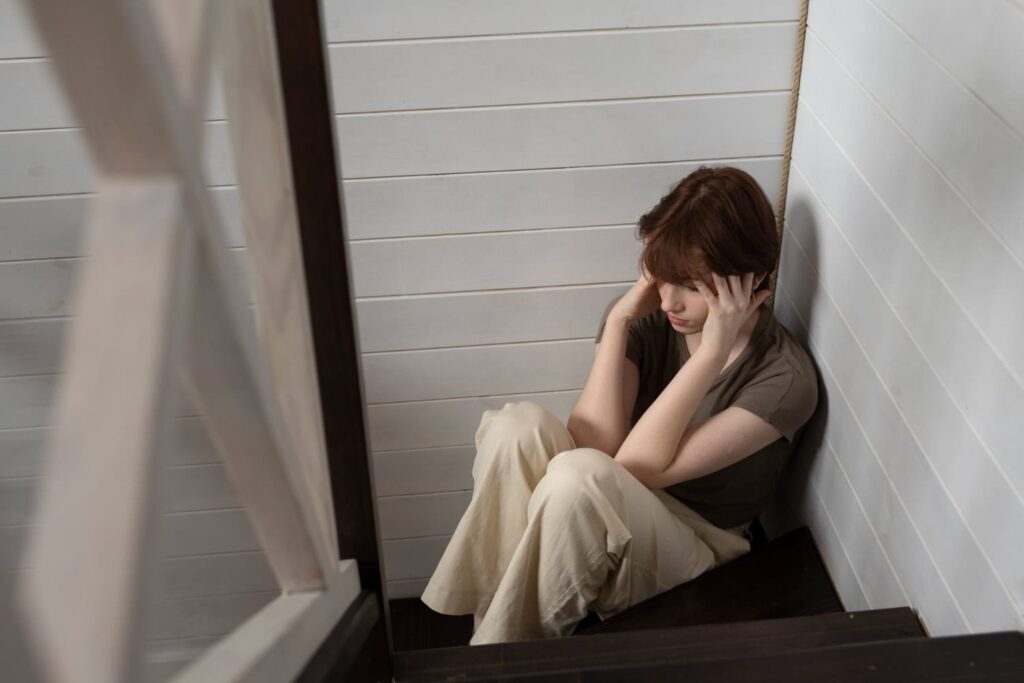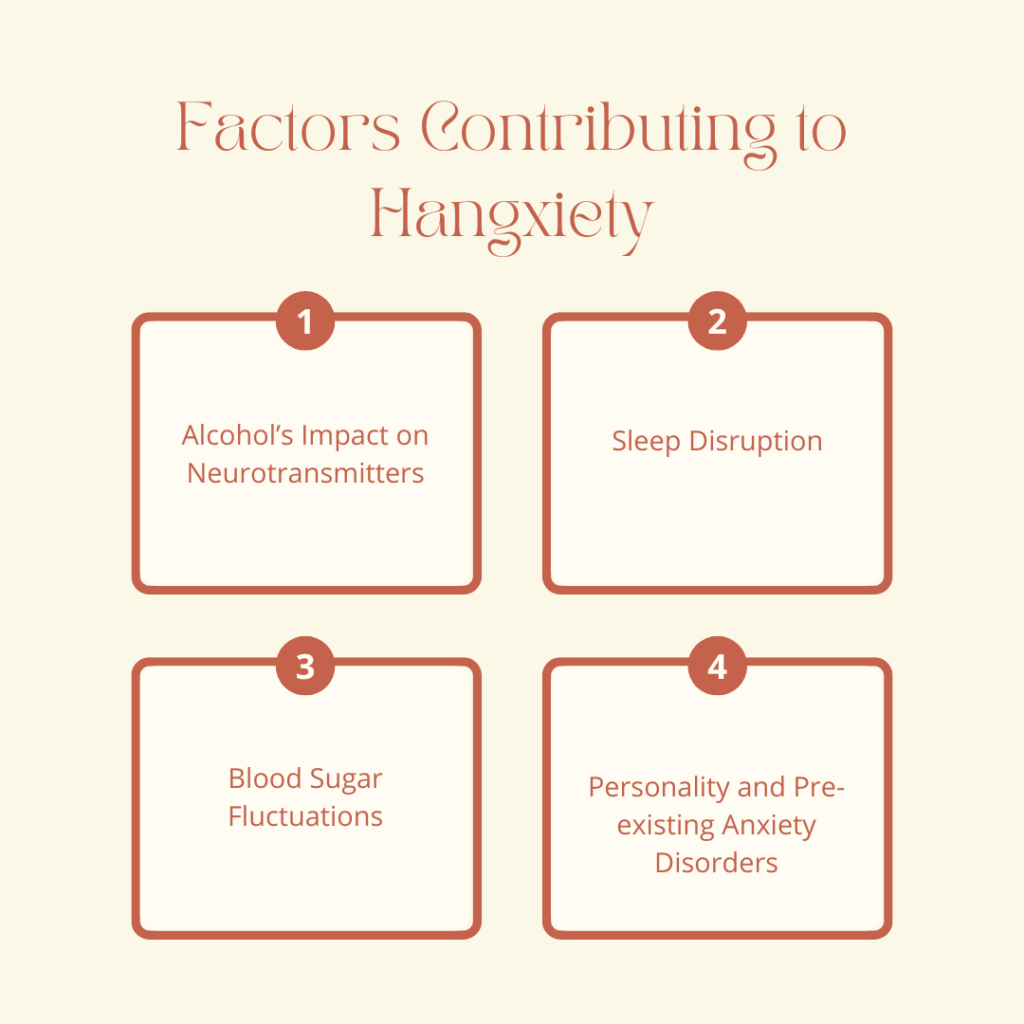Many people enjoy a drink or two to unwind after a long day, but for some, the aftermath of booze consumption can lead to a troubling experience known as “hangxiety.” This term describes the anxiety that often follows a night of drinking, a phenomenon that is increasingly recognized as a significant mental health concern. At Archway Behavioral Health, we understand the complex relationship between booze and anxiety and how our mental health treatment services can help.
Booze and anxiety have a complex relationship. Many people turn to booze as a way to cope with their anxiety, but what seems like a quick fix can actually worsen the problem in the long run. In this post, we’ll explore how booze affects anxiety and why seeking professional help, such as mental health treatment services, can make a real difference.
Understanding Hangxiety
Hangxiety occurs when the pleasurable effects of booze give way to feelings of anxiety, stress, and regret once the booze wears off. It can manifest as increased heart rate, restlessness, irritability, and feelings of dread. While it might seem counterintuitive that a depressant like booze can lead to anxiety, the reality is that booze alters brain chemistry, impacting neurotransmitters that regulate mood.
The Science Behind It
When you consume booze, it initially acts as a sedative, making you feel relaxed and sociable. However, as your body processes the booze, your system begins to rebound, potentially leading to heightened anxiety. This rebound effect is linked to several factors:
- Dehydration: Booze is a diuretic, which can lead to dehydration and worsen anxiety symptoms.
- Withdrawal Symptoms: As your body metabolizes booze, you may experience mild withdrawal symptoms that mimic anxiety.
- Social Situations: Booze is often consumed in social settings, where you may also face pressure or expectations, leading to anxiety.
Booze as a Temporary Relief
For some individuals, drinking booze may temporarily ease feelings of stress or tension. This is why many people reach for a drink when they’re feeling anxious. However, this relief is short-lived and can be followed by increased anxiety later on.
As booze leaves the body, the brain experiences a chemical imbalance that can lead to heightened anxiety. This is commonly referred to as “booze-induced anxiety” and often occurs the day after drinking, making you feel more anxious than you were before.
The Cycle of Dependence
Using booze as a way to manage anxiety can create a dangerous cycle. After the initial relief fades, the anxiety may return stronger, prompting an individual to drink more to relieve these feelings.
Many mental health treatment centers offer specialized programs to help break this cycle. Programs such as Individual Therapy and group therapy services provide people with healthier coping strategies to manage anxiety without turning to booze.
Long-Term Effects of Booze on Anxiety
In the long run, booze can worsen anxiety symptoms. Regular booze consumption can interfere with the brain’s neurotransmitters, which are responsible for regulating mood and anxiety.
Seeking help from Cognitive Behavioral Therapy centers or Dialectical Behavior Therapy centers can be highly effective for individuals struggling with both anxiety and booze use. These therapies focus on helping individuals change negative thought patterns and develop healthier coping mechanisms.
Mental Health Treatment Options
Mental health treatment services are designed to address the underlying causes of anxiety and substance use. Treatment options may include a combination of Individual Therapy, group therapy services, and more intensive programs.
This allows them to maintain some normalcy in their daily lives while receiving the support they need.
Another option is the Intensive Outpatient Program (IOP), which is a step down from a partial hospitalization program. In an IOP, individuals attend therapy sessions multiple times a week but are not required to stay overnight. This type of program is ideal for those who need structured support but want to continue their work or school commitments.
Breaking the Cycle
Addressing both booze use and anxiety can be challenging, but it is possible with the right support. Whether it’s through Cognitive Behavioral Therapy, Dialectical Behavior Therapy, or a combination of Individual Therapy and group therapy services, there are effective ways to manage anxiety without relying on booze.
If you or someone you know is struggling with anxiety and booze use, reaching out to a mental health treatment center can be the first step toward recovery. These centers provide the tools and resources necessary to break the cycle and find healthier ways to cope with anxiety.
In conclusion, while booze may seem like a quick fix for anxiety, it ultimately exacerbates the problem. Seeking professional help through mental health treatment services can provide long-term solutions and improve both mental health and overall well-being.
Seeking Help at Archway Behavioral Health
If you find yourself struggling with hangxiety or the cycle of booze use and anxiety, it’s essential to seek support. Our mental health treatment center offers a range of effective treatment options, including:
- Individual Therapy: One-on-one sessions with a licensed therapist can help you address the underlying issues contributing to your booze use and anxiety.
- Group Therapy Services: Sharing your experiences with others can provide valuable support and insights, fostering a sense of community and understanding.
- Cognitive Behavioral Therapy Centers: Our CBT programs focus on changing negative thought patterns and behaviors related to booze and anxiety, empowering you to develop healthier coping strategies.
- Dialectical Behavior Therapy Centers: DBT emphasizes mindfulness and emotional regulation, helping you navigate intense feelings that may arise after drinking.
- Partial Hospitalization Program (PHP): For those requiring more intensive support, our PHP offers structured care while allowing for some flexibility.
- Intensive Outpatient Program (IOP): This program is designed for individuals who need ongoing support while maintaining their daily responsibilities.
Conclusion
Hangxiety is a real and often debilitating experience that highlights the intricate relationship between booze and anxiety. Recognizing the signs and understanding the underlying causes is the first step toward healing. At Archway Behavioral Health, we are committed to helping individuals navigate these challenges through tailored mental health treatment services. Call us at (888) 488-4103. Our team of experts is committed to providing compassionate and effective care to support your journey towards healing and well-being.
FAQ: Hangxiety and Booze
What is hangxiety?
Hangxiety is a term used to describe the anxiety that many people experience after consuming booze. It often includes feelings of dread, restlessness, and irritability that can occur once the effects of booze wear off.
Why does booze lead to anxiety?
Booze initially acts as a sedative, but as your body processes it, it can lead to a rebound effect that increases anxiety levels. Factors like dehydration, withdrawal symptoms, and social pressures can also contribute to feelings of anxiety.
How can I tell if I have hangxiety?
If you frequently experience anxiety after drinking booze, including symptoms like increased heart rate, irritability, and feelings of dread, you may be experiencing hangxiety. Monitoring your feelings after drinking can help you identify patterns.
Can hangxiety be treated?
Yes, hangxiety can be addressed through various mental health treatment services. Options include individual therapy, group therapy, and specialized approaches like Cognitive Behavioral Therapy (CBT) and Dialectical Behavior Therapy (DBT).
What treatment options are available at Archway Behavioral Health?
At Archway Behavioral Health, we offer a range of services, including individual therapy, group therapy services, a Partial Hospitalization Program (PHP), and an Intensive Outpatient Program (IOP) tailored to meet individual needs.
How can I reduce hangxiety?
To reduce hangxiety, consider moderating your booze intake, staying hydrated, and practicing mindfulness or relaxation techniques. Seeking support from a mental health professional can also be beneficial.
When should I seek professional help?
If hangxiety is affecting your daily life, relationships, or mental well-being, it may be time to seek professional help. Our team at Archway Behavioral Health is here to support you on your journey to recovery.



